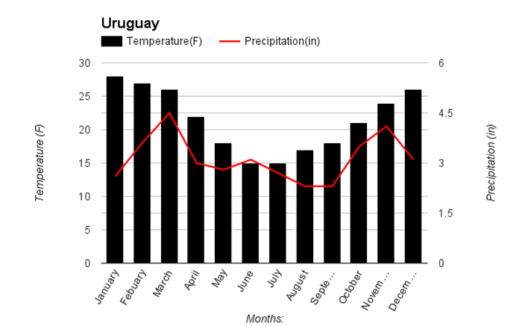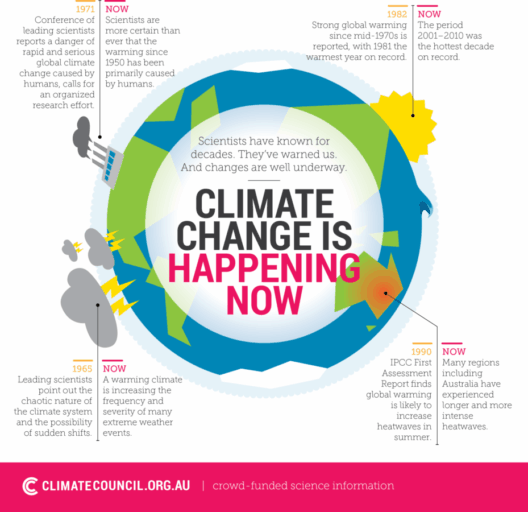In recent decades, the phenomenon of global warming has emerged as one of the most pressing concerns of our age. As changes in climate continue to unfold across the globe, an array of questions regarding the cause and effects of this alarming trend persist. Touted by empirical research and a consensus among the scientific community, the underlying causes of global warming are primarily attributed to human-induced factors, particularly the consumption of fossil fuels, deforestation, and industrial practices. The implications of these factors are profound and manifold, permeating through environmental, social, and economic domains.
To understand the roots of global warming, it is imperative to delve into the mechanisms of greenhouse gases. The Earth relies on a delicate balance of greenhouse gases—such as carbon dioxide (CO2), methane (CH4), and nitrous oxide (N2O)—to maintain a hospitable atmosphere. These gases serve to trap heat from the sun, a process known as the greenhouse effect. However, human activities have significantly augmented the concentration of these gases within the atmosphere. The combustion of fossil fuels for energy and transportation emits copious amounts of CO2, while agricultural practices emit methane through livestock digestion and nitrous oxide from fertilized soils. The rampant deforestation exacerbates this situation, as trees, which play a critical role in sequestering carbon, are systematically removed.
A pivotal point of intrigue lies in the fact that, despite an overwhelming consensus among climate scientists regarding these causes, skepticism endures within certain segments of society. This dissonance can be traced to a variety of factors including misinformation, economic interests, and political ideologies. Such a divergence in public perception underscores a broader debate around the narratives of climate science. Presenting global warming, therefore, is not merely a scientific undertaking; it demands navigational skill through the often turbulent waters of societal beliefs and values.
Moreover, the effects of global warming are evidenced by an array of environmental changes that are intensifying at an alarming rate. The manifestations are vivid and alarming. One need only to observe the less frequent but increasingly severe weather events, such as hurricanes, droughts, and floods that have devastated landscapes, economies, and lives. These phenomena disrupt not only the immediate ecosystem but also the socio-economic fabric of societies reliant on stable weather patterns for agriculture, infrastructure, and energy. Additionally, rising global temperatures have been attributed to unprecedented melting of polar ice caps, leading to rising sea levels. Coastal cities around the world are now faced with existential threats as they grapple with inundation and erosion.
Further compounding the implications of these environmental changes is the impact on biodiversity. The rapid pace of climate change poses significant risks to various species as habitats undergo transformation. Many species find themselves unable to adapt quickly enough to the oscillating climate, resulting in disruptions to ecological balances and food webs. A prominent example includes coral reefs, which are experiencing widespread bleaching events due to increased water temperatures—an event that jeopardizes marine biodiversity and the livelihoods of communities dependent on these ecosystems.
Consequently, as scientists continue to elucidate the causes and impacts of global warming, they consistently reiterate that the matter at hand is urgent and achievable. Mitigating the effects of climate change necessitates collective action across the globe. Innovative solutions are emerging from various disciplines, underscoring the potential for societal transformation. Renewable energy technologies, such as wind and solar, offer pathways to reduce greenhouse gas emissions. Increasing reforestation efforts can enhance carbon sequestration while restoring ecosystems, fostering resilience against climate adversities.
Moreover, the role of policy cannot be overstated. Governments are challenged not only to formulate responsive policies that confront climate change but also to promote public awareness and education concerning environmental stewardship. The intersectionality of climate action with social equity further illustrates the need for comprehensive strategies that acknowledge the disproportionate impacts of climate change on vulnerable populations. Ensuring a just transition is fundamental; all community members must have equitable access to clean energy solutions and resources to combat the adverse effects of climate change.
While debates surrounding climate change may persist, key questions about the consensus among scientists remain clear. The overwhelming majority agree on both the anthropogenic causes of global warming and its disastrous effects. This reality translates into undeniable responsibility—the necessity to act decisively to curb emissions, protect ecosystems, and preserve the planet for future generations. The confluence of facts, statistics, and research should galvanize society toward recognizing climate change as not just an environmental issue, but a multifaceted dilemma integrating ethical, economical, and social dimensions.
As global citizens navigate this pivotal epoch marked by climate change, an appreciation for the findings of climate science must penetrate the public discourse. By fostering informed discussions, debunking misinformation, and cultivating a culture of environmental awareness, society can embark on a path toward a more sustainable and resilient future. The stakes are inexorably high; yet, the possibilities for innovative solutions and lasting change are within our grasp. The time for action is now, driven by a shared understanding of the remarkable agreement among scientists regarding the cause and effects of global warming.







